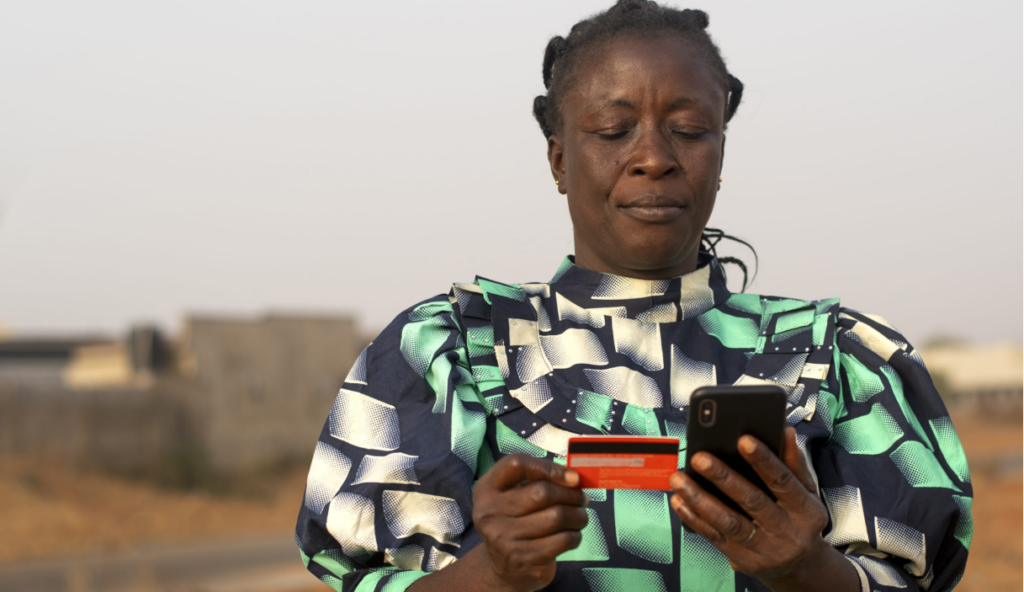Open Banking has been touted as one of the most revolutionary shifts in financial services, with Nigeria at the forefront of adopting this transformative model in Africa. In 2021, the Central Bank of Nigeria (CBN) formalized the Open Banking regulatory framework, sparking a new wave of excitement and innovation. Yet, for something that’s supposed to be clear-cut, the definitions seem to get murky as different players interpret it in their own ways. Many people, even within financial services, confuse various tech-driven services with Open Banking. Ask ten different people, and you’ll get fifteen different answers.
In reality, Open Banking is all about data control — customers are at the center, with the ability to share their financial data across platforms through standardized, secure APIs. But as exciting as it sounds, the term “Open Banking” is often misused or misunderstood.
Let’s take a closer look at what Open Banking truly is and what it is not.
What is Open Banking?
At its core, Open Banking is a regulatory framework that gives customers the power to share their banking data with third-party providers (TPPs) through standardized APIs. These APIs enable safe and controlled access to account information and payment services, allowing customers to benefit from new, innovative financial products tailored to their needs.
In Nigeria, Open Banking aims to enhance financial inclusion, promote competition, and stimulate innovation by ensuring that banks and fintechs operate on a level playing field. The CBN’s 2021 Open Banking Framework mandates that all participants (whether banks or fintechs) comply with strict guidelines on data sharing, customer consent, and security standards.
This regulatory structure is vital for building trust and protecting consumers, ensuring that data sharing is transparent and secure. Globally, Open Banking has already taken root in places like the UK, where the Open Banking Implementation Entity (OBIE) oversees the development of the Open Banking ecosystem. As of 2023, over 6 million UK consumers were actively using Open Banking services.
In Nigeria, the potential for similar growth is immense. Industry leaders champion this path, and fintech companies and traditional banks are eager to take part in the gospel of Open Banking—secure, standardized, and regulated data sharing.
What Open Banking is NOT
Now, let’s discuss f what Open Banking is not, helping to clear up any confusion around this often misunderstood framework:
Having APIs alone is not Open Banking
All Nigerian banks offer APIs in one shape or the other with some of them claiming they’re part of the Open Banking wave. However, simply having APIs doesn’t make an institution compliant with Open Banking standards. The key element that transforms a basic API into part of the Open Banking ecosystem is standardization. For an API to be classified as part of Open Banking, it must adhere to consistent regulatory standards, like those set by the CBN in Nigeria. These standards ensure interoperability across the financial ecosystem. Without this regulatory oversight, APIs are simply standalone tools, not part of the Open Banking system. Take Europe, for example: under the PSD2 directive, over 42 European banks use APIs that comply with a single regulatory standard. Nigeria is working toward a similar framework, but any bank claiming Open Banking status without meeting the CBN’s strict guidelines isn’t part of the system.
Data aggregators aren’t Open Banking
Fintechs like Mono, Stitch, and Okra provide customers with access to their financial data by aggregating information from multiple accounts. While this might sound like open banking, it’s not. These companies act more like data brokers than participants in a regulated open banking ecosystem. They use scraping techniques or some pretty smart reverse engineering retrieve data but don’t necessarily follow universal standards or regulations set by central authorities like Nigeria’s Open Banking Framework. True open banking requires that the sharing of customer data is done with explicit customer consent and in a regulated environment that ensures transparency and security. In most countries with formal open banking regulations, only licensed entities can access and share customer data in this way. Data aggregators often operate outside these frameworks, which means they don’t offer the same legal protections as regulated open banking services.
Private partnerships aren’t Open Banking
Some banks and fintechs create private partnerships or proprietary ecosystems where customer data is shared between select parties, often within their own networks or between subsidiaries. While these arrangements allow for financial data sharing, they are restricted to closed loops and internal rules. Unlike Open Banking, which is governed by regulatory frameworks, these proprietary systems operate without uniform API standards or broad accessibility. True Open Banking hinges on standardized, open APIs that facilitate customer consent and transparent data sharing across multiple platforms, not just within closed networks.
The true Open Banking
While technology is the visible face of Open Banking, regulation is its backbone. True Open Banking empowers consumers by giving them control over their data in a secure, regulated environment. Anything less may offer data-sharing capabilities but lacks the standardized security and transparency that true Open Banking provides.
Without adherence to regulatory frameworks like the CBN’s Open Banking standards, these services remain tech tools with a fancy label, not true Open Banking. For updates on the latest in open banking in Nigeria, details on membership opportunities, or participation inquiries, you can contact the dedicated OBN team at [email protected].
